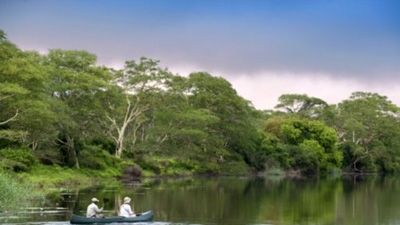WASHINGTON, October 3, 2013 – Although South Africa has achieved substantial tourism success, deepening and sustaining that success in the face of global competition is a constant challenge, according to a new report released today.
Tourism in Africa: Harnessing Tourism for Growth and Improved Livelihoods, explores how tourism has been used as a tool for economic development throughout the world, and how Sub-Saharan African countries can start or continue to use tourism as a source of growth and poverty alleviation. Written primarily for government state, and local policy makers, potential investors and other stakeholders, the report provides an objective analysis of the tourism industry, its economic value and its potential.
Through a case study, the report highlights two of South Africa’s successful wildlife tourism companies, &Beyond and Wilderness Safaris (WS), as examples of successful public-private partnerships. Both companies have been successful for more than 20 years using a business model that includes both conservation and community development, according to the report.
In addition to generating local procurement, capital investment, biodiversity conservation and corporate social responsibility, both companies are staffed with local employees, allowing the staff and their dependents to live above the poverty line of US$1 per day.
Key lessons about South Africa tourism from the report include:
- The safari lodge model has been shown to increase local employment, local procurement, capital investment, biodiversity conservation, and corporate social responsibility
- The public-private partnerships help the transition from international donor funding for conservation to an entirely domestic economy to support public protected areas
- The long-term and mutually beneficial joint ventures provide a local stream of income for communities and preserves their land rights

